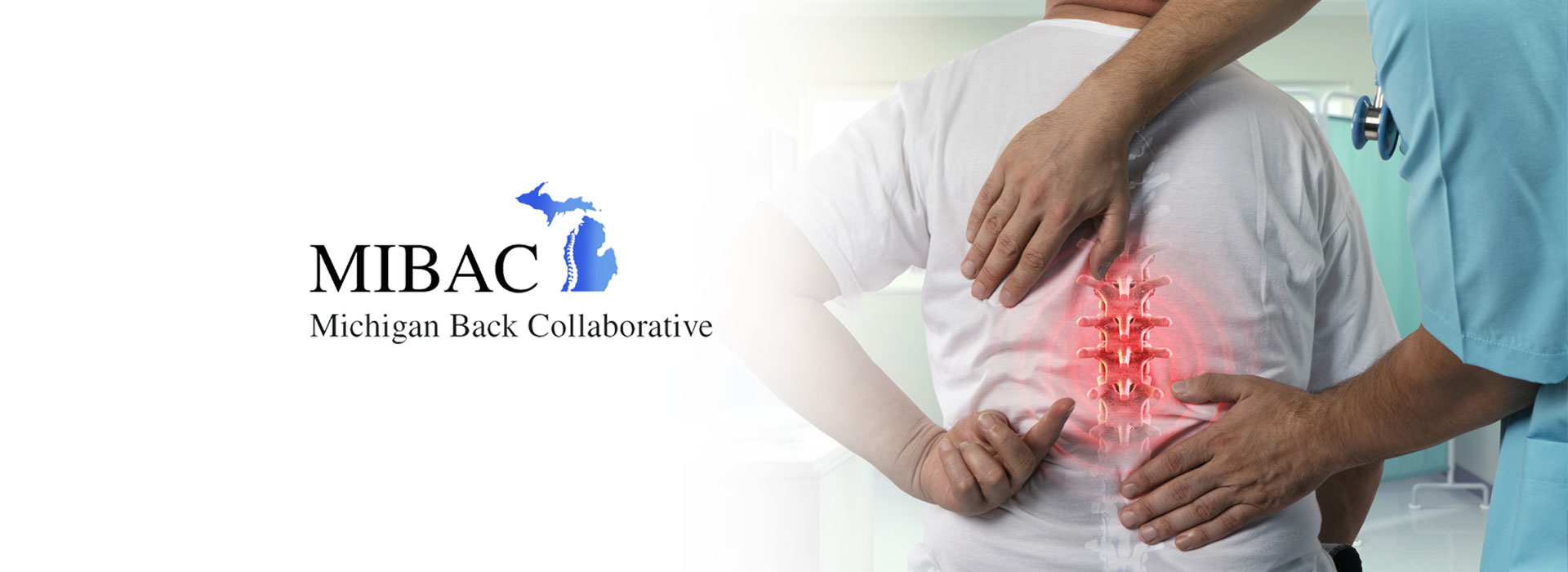Michigan Back Collaborative
MIBAC is a statewide quality improvement collaborative focused on better care for low back pain by “first-contact” clinicians – primary care physicians and chiropractors. It is the newest in the set of statewide collaborative quality improvement programs supported by Blue Cross Blue Shield of Michigan (BCBSM).
The goals are better and more effective care patterns, better outcomes for patients, and greater satisfaction for both clinicians and patients.
Low back pain can be frustrating for both patients and clinicians. There is often no single cause for the pain that can be “fixed” with one simple approach to treatment. There can then be unnecessary imaging studies and referrals, use of unproven therapies, over-use of opioids, and dissatisfied patients who never do get effective relief of pain.
There will be three levels of participation in MIBAC. The first level of participation in MIBAC is on-line (or in-person when feasible) training for primary care physicians and chiropractors – two hours for PCPs and twelve hours for chiropractors. The training offers a framework for treating low back pain, a set of treatment protocols to follow, and a “toolbox” of additional resources. A second level will involve asking patients to use a smart phone app to report pain and functional outcomes data at regular intervals to a central registry. A third level will involve contributing clinical data to the central registry, using data analyses from the registry to identify “best practices” and opportunities for improvement, and working together on both state-wide and locally-focused quality improvement initiatives.
MIBAC will involve physician organizations and individual practices from throughout the state.
The Coordinating Center will be based at Henry Ford Health in Detroit, supported by Blue Cross Blue Shield of Michigan (BCBSM) and Blue Care Network (BCN) as part of the Value Partnerships program. The training modules are being provided by Spine Care Partners, a group with extensive experience in successful provider training in several other states.

